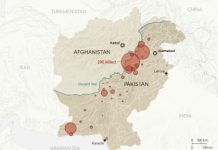Once the pride of the nation and a symbol of sporting excellence, Pakistan hockey now stands at the brink of collapse. With a rich legacy that includes three Olympic gold medals and four World Cup titles, the current state of our national sport is nothing short of tragic. The recent performances of the national team have been disappointing, not due to a lack of talent or passion, but due to chronic neglect, outdated systems, and an alarming absence of support.
Unlike cricketers who enjoy star status, generous contracts, and corporate endorsements, our national hockey players are treated like second-class athletes. Most players do not even have full-time jobs or career security, despite representing the country on international platforms. Many live in financial uncertainty, without a stable income or post-retirement plans. The daily allowance provided to them is pitiful, barely enough to cover basic needs. This is not only demoralizing but disgraceful.
The conditions during national training camps further reflect this institutional apathy. Players are housed in below-average accommodations with minimal amenities. There are no proper recovery facilities, no specialized fitness equipment, and shockingly, even clean drinking water is a luxury. Players rely on tap water during training—a basic health risk that should be unacceptable at any level of professional sport.
Adding to the woes is the politicization of hockey’s administrative structure. Infighting, favoritism, and mismanagement have become the norm in the Pakistan Hockey Federation (PHF). Rather than focusing on player development and grassroots promotion, the leadership has been preoccupied with power struggles and self-preservation. Young talent is often overlooked due to lack of connections, while coaching staff and support personnel are rarely appointed on merit.
The Prime Minister of Pakistan, who is also the patron-in-chief of the PHF, must now take notice and act decisively. The time for ceremonial statements is over. Pakistan hockey needs immediate and sweeping reforms. A dedicated task force should be established to assess the shortcomings and present a roadmap for revival—starting with better financial packages for players, proper accommodation, nutrition, modern training facilities, and a merit-based selection process.
Moreover, corporate sponsorships and media support must be encouraged to bring financial stability and visibility to the sport. Hockey academies and school-level competitions must be revived to build a strong pipeline of young talent.
Pakistan’s hockey players still carry the fire and patriotism to restore past glory, but without proper support, their passion alone is not enough. If action is not taken now, we risk losing not just matches—but an entire generation of hockey.

















